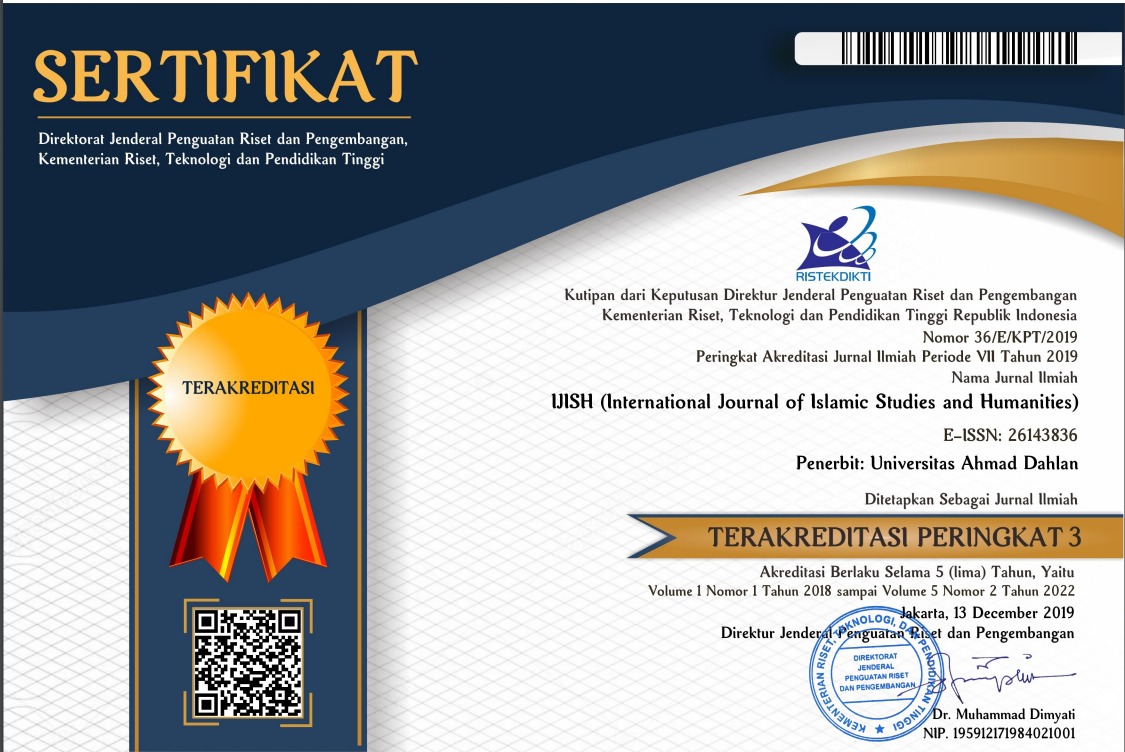Problem of Isis’s Qur’anic Interpretations and Claim of The Implementation of Sharia Law
DOI:
https://doi.org/10.26555/ijish.v1i2.555Keywords:
ISIS, Qur’anic interpretations, Implementation of sharia law, MaqÄsid al-sharī’ah.Abstract
This paper discusses the problem of ISIS’s Qur’anic interpretations regarding the implementation of sharia law and the concept of jihad. It is essential to address this topic because the self-proclaimed Caliphate have claimed that their barbaric actions such as indiscriminate killing of civilians, plundering, and declaring other Muslims as apostates are based on Qur’anic verses. They also consider these actions as part of the jihad to uphold sharia law. This paper argues that there are two main problems in ISIS’s Qur’anic interpretations, namely (1) cherry picking Qur’anic verses that support their causes. According to the principles of Qur’anic exegesis (ushul al-tafsÄ«r), this method of interpretation is certainly not justified because it will lead to the partial understanding of the message of the Qur’an; (2) attempting to enforce the sharia law without proper understanding of the law. As a result, ISIS’s implementation of sharia goes against the ultimate purposes of the sharia (maqÄsid al-sharī’ah).Downloads
Published
2018-09-02
How to Cite
Aulassyahied, Q. (2018). Problem of Isis’s Qur’anic Interpretations and Claim of The Implementation of Sharia Law. IJISH (International Journal of Islamic Studies and Humanities), 1(2), 76–86. https://doi.org/10.26555/ijish.v1i2.555
Issue
Section
Articles
License
Authors who publish with IJISH (International Journal of Islamic Studies and Humanities) agree to the following terms:
- Authors retain copyright and grant the journal right of first publication with the work simultaneously licensed under a Creative Commons Attribution License (CC BY-SA 4.0) that allows others to share the work with an acknowledgment of the work's authorship and initial publication in this journal.Â
- Authors are able to enter into separate, additional contractual arrangements for the non-exclusive distribution of the journal's published version of the work (e.g., post it to an institutional repository or publish it in a book), with an acknowledgment of its initial publication in this journal.
- Authors are permitted and encouraged to post their work online (e.g., in institutional repositories or on their website) prior to and during the submission process, as it can lead to productive exchanges, as well as earlier and greater citation of published work.

This work is licensed under a Creative Commons Attribution-ShareAlike 4.0 International License.






